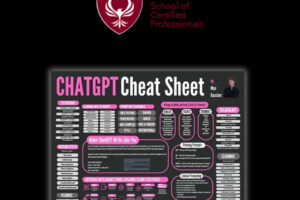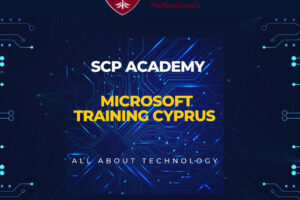Mastering IT Recruitment: A Comprehensive Guide for HR Professionals
As technology continues to evolve, so does the challenge of recruiting skilled IT professionals. HR teams are expected to navigate an increasingly complex landscape of roles, from cloud computing experts to data analysts and cybersecurity professionals. This guide will help HR professionals understand the variety of IT roles, the skills associated with each, and how to optimize recruitment for these positions.
1. Key IT Roles Every HR Professional Should Know
To recruit effectively, you need to understand the specific IT roles you’re hiring for. Here’s a breakdown of some of the most common and critical IT positions in today’s tech-driven world:
Cloud Professionals
Cloud computing is the backbone of modern IT infrastructure. Cloud professionals design, implement, and manage cloud services for organizations, helping businesses scale and optimize their digital operations.
- Key Skills: Experience with platforms like AWS, Microsoft Azure, or Google Cloud; automation tools; knowledge of virtualization.
- Certifications to Look For: Mile2 Certified Cloud Security Officer (CCSO), AWS Certified Solutions Architect, Microsoft Certified: Azure Azure Administrator.
Security Professionals
Cybersecurity experts ensure that digital systems are protected from internal and external threats. They are essential for protecting data, preventing breaches, and ensuring compliance with security standards.
- Key Skills: Network security, threat analysis, risk management, encryption, firewall management.
- Certifications to Look For: Mile2 Certified Information Systems Security Officer (CISSO), Certified Professional Ethical Hacker (CPEH), Microsoft Certified: Azure Security Engineer Associate, Microsoft Information Protection and Compliance Administrator.
System Administrators
System administrators (SysAdmins) are responsible for managing and maintaining a company’s IT infrastructure. They monitor servers, networks, and systems to ensure that everything runs smoothly and efficiently.
- Key Skills: Server management, network configuration, troubleshooting, virtualization, and system monitoring.
- Certifications to Look For: Mile2 Certified Virtualization Engineer (CVE), Microsoft Certified: Windows Server Administrator.
Programmers/Software Developers
Programmers and software developers are responsible for creating, testing, and deploying software applications. These professionals need to be adept at writing clean, efficient code and solving complex problems.
- Key Skills: Proficiency in Python, HTML, CSS, and JavaScript, along with knowledge of frameworks like Django or Node.js, Angular, React.
- Certifications to Look For: You can look for Python Institute certifications PCAP,PCPP.
Data Analysts
Data analysts process large datasets to extract valuable insights that help organizations make data-driven decisions. They are key players in turning raw data into actionable intelligence.
- Key Skills: Proficiency in SQL, Python, Excel, and data visualization tools like Power BI or Tableau.
- Certifications to Look For: Mile2 Certified Digital Forensics Examiner (CDFE), Microsoft Certified: Data Analyst Associate.
Project Managers
Project managers oversee IT projects, ensuring they are delivered on time, within scope, and on budget. They need to balance technical knowledge with leadership and organizational skills.
- Key Skills: Project planning, stakeholder management, risk assessment, Agile methodologies.
- Certifications to Look For: Project Management Professional (PMP), ITIL, Certified ScrumMaster (CSM).
DevOps Engineers
DevOps engineers bridge the gap between development and operations teams, ensuring that software updates are deployed rapidly and efficiently while maintaining system stability.
- Key Skills: Continuous integration (CI), continuous deployment (CD), cloud infrastructure, automation, containerization (Docker, Kubernetes).
- Certifications to Look For: AWS Certified DevOps Engineer, Microsoft Certified: Azure DevOps Engineer.
Technical Support (Helpdesk)
These professionals are the first point of contact for technical issues within an organization. They troubleshoot problems, provide support for hardware and software, and escalate complex issues to higher-level engineers.
- Key Skills: Troubleshooting, communication, familiarity with operating systems, basic networking knowledge.
- Certifications to Look For: Mile2 Certified Help Desk Engineer (CHDE), SCP – Certified IT Technician
Business and Technical Consultants
Consultants combine their technical expertise with business acumen to advise companies on how to implement technology solutions that align with their business goals.
- Key Skills: Solution design, stakeholder management, process improvement, change management.
- Certifications to Look For: Mile2 Certified Information Systems Security Officer (CISSO), TOGAF Certification.
2. The Importance of Digital Literacy in IT Recruitment
For HR professionals, it’s crucial to be familiar with the various digital literacy skills that align with these roles. Digital literacy in IT refers to the ability to understand, evaluate, and implement technologies that solve problems or create opportunities within an organization.
When recruiting, HR professionals should look for candidates who demonstrate the following digital skills:
- Problem-solving: IT professionals often face unexpected challenges, from system failures to complex software bugs. Problem-solving skills are critical.
- Technical knowledge: Whether it’s cloud platforms, coding languages, or cybersecurity protocols, technical proficiency is a must for most IT roles.
- Collaboration: Many IT projects require collaboration across departments, so look for candidates who work well with others and communicate effectively.
- Adaptability: Technology is always evolving, so candidates must be open to learning new skills and adapting to new tools or methodologies.
3. How to Optimize Your IT Recruitment Process
Successfully recruiting IT professionals goes beyond understanding the roles. Here are some practical tips to help you streamline the recruitment process:
Crafting Targeted Job Descriptions
- Be specific: Avoid generic job descriptions. Tailor each job posting to the exact needs of the role. For example, don’t just ask for a “programmer”—mention the specific programming languages (e.g., Python, HTML, JavaScript) and frameworks they need to know.
- List required certifications: Include the certifications relevant to the role, such as AWS for cloud positions or Mile2 for cybersecurity roles. Certifications indicate candidates have met a standard level of expertise.
- Highlight growth opportunities: IT professionals often value opportunities to learn new technologies and gain certifications. Mention any learning or development programs your company offers.
LinkedIn and Social Media Recruitment
- Utilize advanced search features: On LinkedIn, use filters to narrow down candidates by location, experience, and certifications.
- Be proactive: Don’t just post jobs—reach out to candidates with the skills you’re looking for, especially for niche roles like cloud architects or data scientists.
- Join IT-specific groups: Engage with tech professionals in relevant online groups or forums to establish a presence and attract potential candidates.
Conducting Effective Technical Interviews
Technical interviews should go beyond just asking candidates about their experience. You need to test their hands-on skills and critical thinking. Here are some best practices:
- Prepare real-world scenarios: Give candidates a task that reflects their actual job responsibilities, such as setting up a cloud environment or solving a data analysis problem.
- Incorporate hands-on assessments: Use live coding challenges for developers or technical tests for system administrators .
- Assess soft skills: Beyond technical knowledge, evaluate candidates for their communication skills, ability to work in teams, and how they approach problem-solving.
4. The Role of Certifications and Lifelong Learning in IT Careers
In IT, the landscape is always changing. That’s why continuous learning and certifications play a critical role in the success of an IT professional. Here’s what you should know:
The Value of Certifications
Certifications are a way for IT professionals to validate their expertise in specific tools, platforms, or methodologies. For example:
- Cloud Certifications: AWS, Azure, and Google Cloud certifications demonstrate proficiency in cloud infrastructure management.
- Cybersecurity Certifications: Mile2 certifications like Certified Information Systems Security Officer (CISSO) validate knowledge in securing networks, systems, and data.
- Programming Certifications: Programming languages like Python and JavaScript , security-focused certifications (e.g., Mile2 Certified Secure Web Application Engineer) can help validate a programmer’s ability to write secure code.
On-the-Job Training and Performance Assessment
Many top IT professionals are attracted to roles where they can continue to learn and grow. Offering on-the-job training, access to new tools, and support for obtaining certifications can make your job openings more appealing to candidates.
Conclusion
Recruiting for IT roles requires more than just a surface-level understanding of technology. By gaining insight into the key IT positions, knowing the right questions to ask during interviews, and utilizing digital tools like LinkedIn and AI-powered recruitment software, HR professionals can enhance their ability to attract, evaluate, and hire top tech talent.


